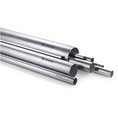What to avoid in stainless steel sink?
Stainless steel sinks are a popular choice for kitchens and bathrooms due to their durability, sleek appearance, and resistance to stains and corrosion. However, there are certain things that should be avoided to ensure the longevity and optimal performance of your stainless steel sink. In this article, we will discuss these important aspects that should be considered when using and maintaining a stainless steel sink.
Avoid using abrasive cleaners
One of the most common mistakes people make while cleaning their stainless steel sinks is using abrasive cleaners. These cleaners can cause scratches on the surface of the sink, which not only affects its aesthetic appeal but also creates a breeding ground for dirt and bacteria. It is recommended to use non-abrasive cleaners specifically designed for stainless steel sinks. These cleaners are gentle on the surface and effectively remove stains and other impurities without causing any damage.
Avoid scrubbing with steel wool
Similarly, scrubbing the stainless steel sink with steel wool should be avoided. Steel wool is extremely abrasive and can leave deep scratches on the sink surface, making it susceptible to rust and corrosion. Instead, use a soft sponge or cloth to clean the sink. If there are stubborn stains or food particles, allow a mild cleaning solution to sit on the affected area for a few minutes before rinsing. This will help in loosening the stains, making them easier to remove without causing any harm to the sink.
Avoid leaving acidic or alkaline substances on the sink surface
Stainless steel sinks are resistant to most chemicals and substances, but prolonged exposure to acidic or alkaline substances can cause damage. Acidic substances like vinegar, lemon juice, or certain cleaners can corrode the sink finish and leave permanent marks. On the other hand, alkaline substances like bleach can discolor the sink and make it lose its shine. It is important to clean up any spills or splatters immediately to prevent these substances from causing any harm. Regular cleaning and maintenance will also help in preserving the luster of the sink.
Avoid leaving standing water in the sink
Leaving standing water in the sink for extended periods can lead to the formation of water spots and mineral deposits. These spots and deposits can be stubborn to remove and may require additional cleaning efforts. It is recommended to wipe the sink dry after each use to minimize the chances of water spots. Additionally, mineral deposits can be prevented by using filtered water or removing any excess minerals from the tap water.
Avoid using sharp or heavy objects directly on the sink
Stainless steel sinks are durable, but they are not entirely immune to scratches and dents. Avoid using sharp knives or heavy objects directly on the sink surface as they can cause visible scratches and dents. Always use a cutting board or a protective mat when working with sharp objects in the sink. This will not only protect the sink but also maintain the sharpness of your knives.
Avoid prolonged contact with iron or steel objects
Prolonged contact with iron or steel objects can lead to a phenomenon called "rust staining" on the stainless steel sink. Rust staining occurs when small particles of iron or steel come into contact with the sink and oxidize, leaving behind unsightly brownish spots. To prevent this, avoid leaving iron or steel utensils, pots, or pans on the sink surface for extended periods of time. If you notice any rust staining, it can be removed by using a stainless steel cleaner or a paste made of baking soda and water.
Avoid using the sink as a cutting or chopping surface
Stainless steel sinks are designed for washing and cleaning purposes, not for cutting or chopping. Using the sink as a cutting surface can not only damage the sink but also dull your knives. Invest in a good quality cutting board to protect both your sink and knives. This will ensure the longevity of your stainless steel sink and maintain the sharpness of your kitchen tools.
Concluding thoughts
Stainless steel sinks are an excellent choice for any modern kitchen or bathroom. With proper care and maintenance, they can retain their shine and durability for a long period of time. By avoiding abrasive cleaners, steel wool, acidic or alkaline substances, standing water, sharp or heavy objects, prolonged contact with iron or steel, and using the sink as a cutting surface, you can ensure the longevity and optimal performance of your stainless steel sink. Regular cleaning and gentle care will keep your sink looking pristine and functional for years to come.




